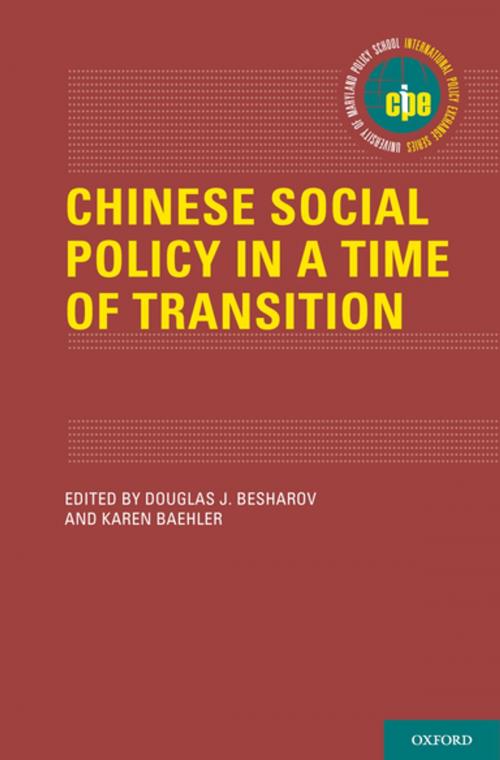Chinese Social Policy in a Time of Transition
Nonfiction, Social & Cultural Studies, Political Science, Government, Public Affairs & Administration, Social Science, Social Work| Author: | ISBN: | 9780199990337 | |
| Publisher: | Oxford University Press | Publication: | May 17, 2013 |
| Imprint: | Oxford University Press | Language: | English |
| Author: | |
| ISBN: | 9780199990337 |
| Publisher: | Oxford University Press |
| Publication: | May 17, 2013 |
| Imprint: | Oxford University Press |
| Language: | English |
The story of China's spectacular economic growth is well known. Less well known is the country's equally dramatic, though not always equally successful, social policy transition. Between the mid- 1990s and mid-2000s---the focal period for this book---China's central government went a long way toward consolidating the social policy framework that had gradually emerged in piecemeal fashion during the initial phases of economic liberalization. Major policy decisions during the focal period included adopting a single national pension plan for urban areas, standardizing unemployment insurance, (re)establishing nationwide rural health care coverage, opening urban education systems to children of rural migrants, introducing trilingual education policies in ethnic minority regions, expanding college enrolment, addressing the challenge of HIV/AIDS more comprehensively, and equalizing social welfare spending across provinces, among others. Unresolved is the direction of policy in the face of longer-term industrial and demographic trends---and the possibility of a chronically weak global economy. Chinese Social Policy in a Time of Transition offers scholars, practitioners, students, and policymakers a foundation from which to explore those issues based on a composite snapshot of Chinese social policy at its point of greatest maturation prior to the 2007 global crisis.
The story of China's spectacular economic growth is well known. Less well known is the country's equally dramatic, though not always equally successful, social policy transition. Between the mid- 1990s and mid-2000s---the focal period for this book---China's central government went a long way toward consolidating the social policy framework that had gradually emerged in piecemeal fashion during the initial phases of economic liberalization. Major policy decisions during the focal period included adopting a single national pension plan for urban areas, standardizing unemployment insurance, (re)establishing nationwide rural health care coverage, opening urban education systems to children of rural migrants, introducing trilingual education policies in ethnic minority regions, expanding college enrolment, addressing the challenge of HIV/AIDS more comprehensively, and equalizing social welfare spending across provinces, among others. Unresolved is the direction of policy in the face of longer-term industrial and demographic trends---and the possibility of a chronically weak global economy. Chinese Social Policy in a Time of Transition offers scholars, practitioners, students, and policymakers a foundation from which to explore those issues based on a composite snapshot of Chinese social policy at its point of greatest maturation prior to the 2007 global crisis.















